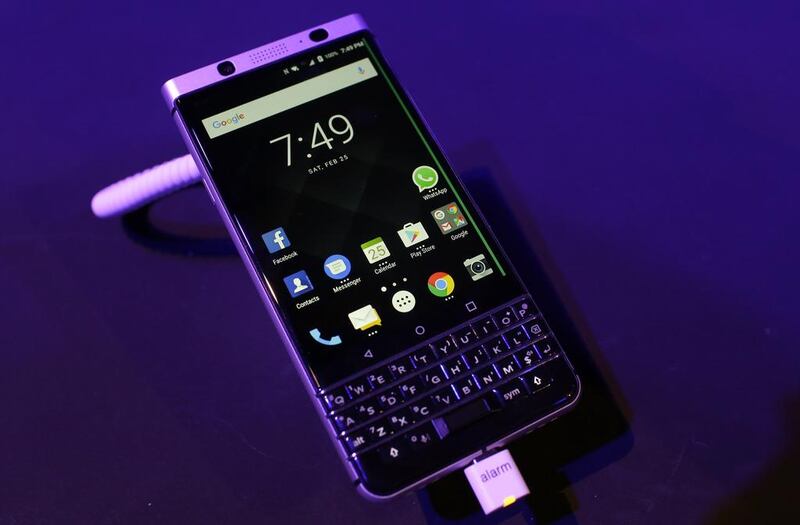BlackBerry Mobile, now a division of TCL Communication, has insisted its brand and handsets remain compelling for Middle East customers, ahead of the launch of its flagship smartphone in the region.
The handset maker TCL Communication, which last year acquired global rights to BlackBerry’s mobile brand, launches the BlackBerry KeyOne in the UAE today, the first BlackBerry handset with a physical keyboard since last year’s Priv.
BlackBerry handsets have declined in popularity in recent years, failing to match the appeal of high-end devices from Apple and Samsung.
BlackBerry’s global market share, which stood at 20 per cent in 2007, stood at just 0.05 per cent at the end of 2016, although this figure did not include TCL’s BlackBerry DTEK50 and DTEK60 handsets.
Mike Al Mefleh, the regional manager for Blackberry Mobile in the Middle East, insisted the brand remains popular within the region. “As a brand, BlackBerry is still very likeable and very trusted,” he said.
“Travelling around the region, talking to different telcos and customers, the attachment is still there. People love and enjoy the productivity they get out of [our handsets].”
Mr Al Mefleh said the KeyOne’s physical keyboard, combined with BlackBerry’s security software and access to Android apps, will hopefully persuade former BlackBerry devotees to return to the fold. “People still have an attachment to [the physical typing experience].
“We did some research that shows that 25 per cent of smartphone users would be willing to switch to a physical keyboard.”
Analysts remain sceptical of such claims, however, noting that the majority of smartphone users have little incentive to seek out a physical keyboard.
“In some ways a physical keyboard helps BlackBerry to differentiate their offering in an increasingly commoditised Android environment, but it’s hard to see what value it adds,” said Roberta Cozza, a research director at Gartner in the United Kingdom.
Even BlackBerry’s security features are no longer the selling point that they once were, she said, noting that such features on Android handsets from the likes of Google and Samsung are sufficient for most users.
The BlackBerry KeyOne, on sale for Dh1,999, is the first BlackBerry Mobile handset to go on general release worldwide this year.
The BlackBerry Aurora, a mid-range touchscreen device launched in March, is currently only available in Indonesia.
Mr Al Mefleh said TCL was likely to launch at least one more BlackBerry-branded device before the end of the year, but gave no further details.
jeverington@thenational.ae
Follow The National's Business section on Twitter





